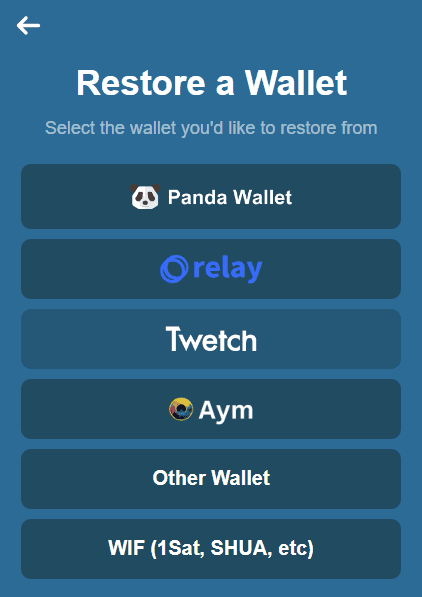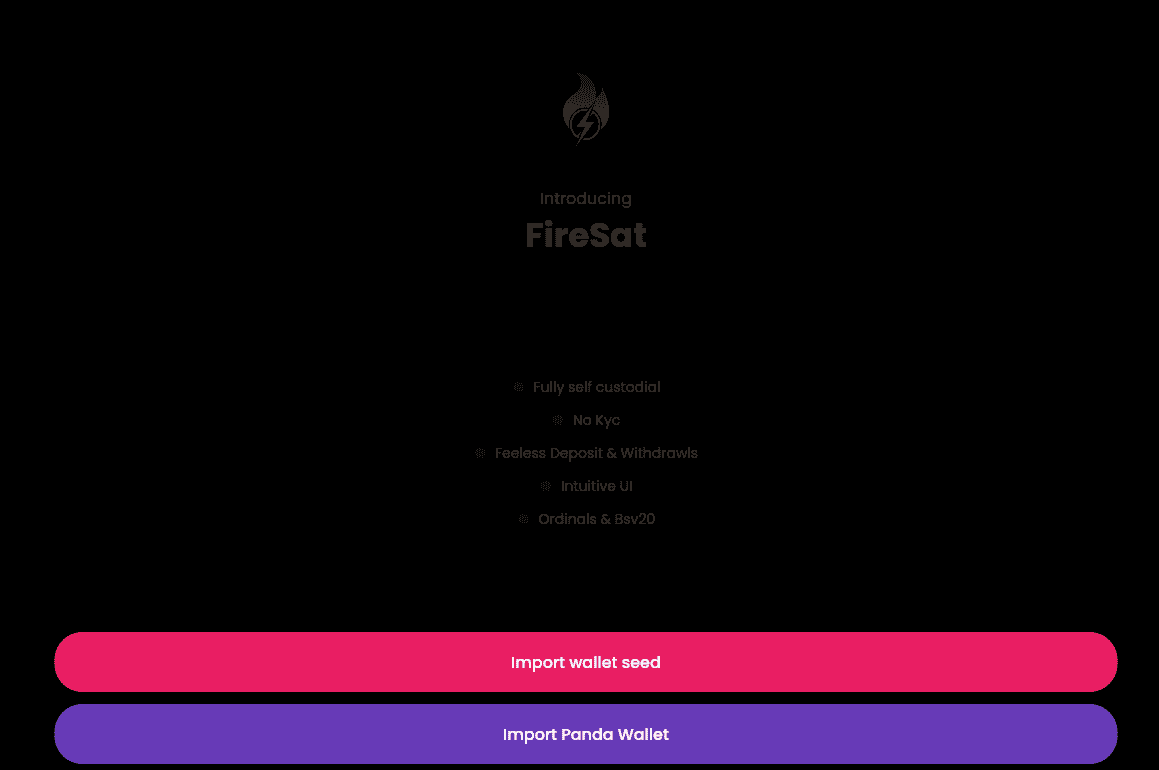|
Getting your Trinity Audio player ready...
|
After five years, the BSV blockchain finally has a Web3 Browser Extension wallet with similar functionality as Metamask on Ethereum.
Panda Wallet, an open-source, non-custodial browser extension, has web application APIs and full 1Sat Ordinals token support. This innovation is a stark contrast to previous Bitcoin wallets, which were closed-source and implemented proprietary token protocols. This development has coincided with a grassroots movement to counter those earlier attempts at walled gardens by opening up the ecosystem.
Multiple developers are collaborating on Panda Wallet’s development, and we are already seeing the fruits of that labor with interoperable marketplaces and wallets.
Panda Wallet, SHUAllet, and now FireSat have all adopted the 1Sat Ordinals token protocol standard and are fully interoperable with each other.


While Twetch and RelayX are on separate token protocol standards today (Sigil and RUN, respectively), Panda already allows you to at least import the payment keys of those wallets. This effort also carves out a path for those services to adapt 1Sat Ordinals in the future, as RelayX has done to a degree with Prescriptions. Prescriptions were airdropped to the same address that RelayX used for RUN tokens, and to access, users can simply import their RelayX mnemonic into Panda Wallet to access those inscriptions.
Prescription holders – you can now easily access your airdropped inscriptions via Panda Wallet
1. Panda Wallet ext: https://t.co/OhxXbgRbfw
2. Restore RelayX 12 words into Panda Wallet.
Use m/44'/236'/0'/0/0 for wallet derivation.
Use m/44'/236'/0'/2/0 for ordinal derivation. https://t.co/pkkRHq3lWc pic.twitter.com/qzeG0GwIOd— RelayX (@relayxio) November 5, 2023
Efforts such as these ease the burden on developers to create menial, limited, or one-time value add services (such as the Prescriptions airdrop and support) for functions that should just work, then developers can work on true value add services such as even more wallets, marketplaces, and functionality. In fact, the entire reason Prescriptions was implemented was because of the adoption of yet another token protocol!
The core reason wallet interoperability is possible is due to the coins and tokens being on the public blockchain. As users own their keys, if they are displeased with one provider, they can simply leave and use another. The speed of switching providers can be done in a few clicks. When the 1Sat Ordinals protocol launched in the Spring of 2023, 1satordinals.com and aym.world were the two top wallets. Not even one year later, both have been completely displaced by Panda Wallet and Firesat.io, to the degree where 1satordinals.com has limited functionality and aym.world has completely shut down. Despite this, no users were affected or lost funds (unless they lost their private keys).
If users are concerned about the security of importing their keys into various services, this highlights the importance of open sourcing.
Panda Wallet and 1satordinals.com are open source. FireSat.io is not (yet). Wallets being open-sourced give the community a chance to inspect the security and validate their keys are not being sent to remote servers but truly are preserved client-side.
Additionally, when issues arise, a community of developers is available and incentivized to address the issue, as opposed to opening a ticket with a single company and hopefully receiving a response in 24-48 hours. The reason developers are incentivized is because they are all working with the same asset (Bitcoin) and tokens (1Sat Ordinals).
These incentive structures emphasize the importance of working on a single standard token protocol, just as other blockchains have. Supporting multiple protocols adds risk, increases total effort, and fractures the ecosystem. Additionally, if multiple protocols need to be supported, wallets and services cannot focus on being open-source and interoperable, as they need to focus most of their work on support, bugs, and issues instead. The massive bull run ongoing on BTC Ordinals proves this thesis. Thankfully, some in the BSV blockchain ecosystem seems to have learned an important lesson.
Watch: 1Sat Ordinals on Bitcoin with Joshua Henslee

 07-14-2025
07-14-2025 





